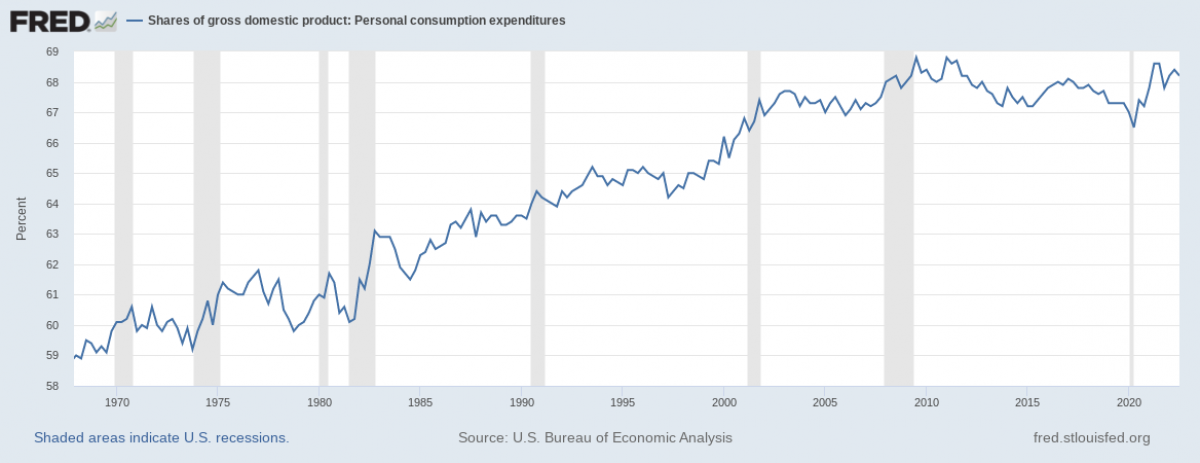But God said to him, ‘Fool! This night your soul will be required of you; then whose will those things be which you have provided?’
Luke 12:20, NKJV
There was a bumper crop that year, the year it was decided that what was needed most was more storage. Wealth was not new to him, but even he was starting to feel cramped. So the building project began.
Old barns and buildings torn down and new ones erected in their place. It was a sight to behold.
Finally - finally - after all of the work, all of building, all of the sacrifice, he finally felt that he had enough. He thought to himself, "Self, you've worked hard and now you deserve to rest."
That is when God spoke to him, and called him a fool.
As people work, buy, build, and sell within any given economy, we measure their aggregate output using a measure called Gross Domestic Product, or GDP. There are several key components to GDP, such as export vs imports, government spending, and capital purchases by businesses. In developed economies, such as the economy of the United States, one component is always the largest and by a wide margin.
Personal Consumption Expenditures.
Every time you update your wardrobe with clothes from the store, or pull out of a dealership in a brand new car, those purchases are captured in the personal consumption category of GDP. Do you use a cell phone? That service is captured as a personal consumption expenditure. Did you hire an attorney this year to look over your will? Personal consumption again.
It may sound a little odd to calculate how much was produced by counting how much was purchased, but someone had to produce that thing you just bought or that service you used, so we're probably not far off. Plus, it's much easier to count was was actually purchased.
In the US, since 1967, personal consumption expenditures have accounted for more than 58% of our GDP. Check out this sweet graph:

This is normal for developed economies (think Germany, Australia, or the UK), and is also true for many developing economies (China or Brazil). You can find a whole list here.
At the level of an economy, personal consumption is critical to the health of that economy. If no one is buying or consuming, then why would anyone produce anything? It's how people have jobs and feed their families. It's how they are able to acquire everything from shelter to education. As personal consumption grows, other parts of the economy grow as well. This economic growth is key to maintaining a high standard of living or increasing the standard of living for the people of the country.
Consumption isn't necessarily good or bad - it can be either depending on what we are talking about. For an economy, it's great. For a person, however, it can consume them. The problem arises when our desire for more, for bigger, or for better begins to take control of our consumption.
The issue for the man in Jesus' story was an issue of more. He wanted more, and when he got that, he wanted more still. After all, if something is good isn't more better? He never had enough until it was too late. He had already spent his life chasing more by then.
More can never be satisfied. More can never truly know rest. More can never reflect on an accomplishment, or a relationship, or a point of insight. More cannot pause and appreciate the thing which is front and center because more is always trying to move to the next thing. Only enough can enjoy these things.
For economies to grow and create more jobs, goods, and services, more consumption is key. At the level of an individual, however, enough will always trump more.

